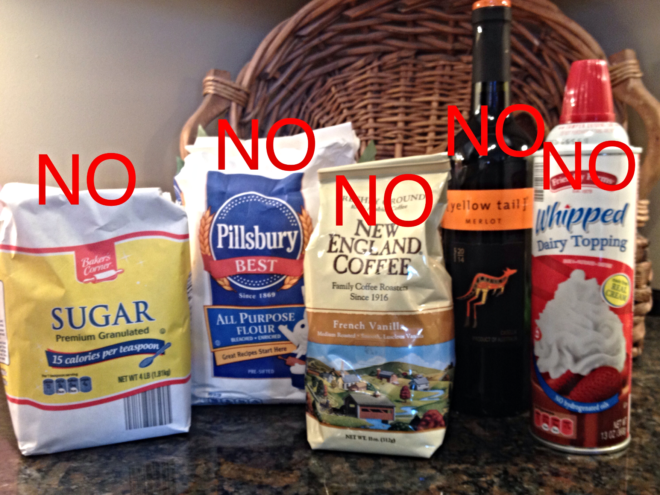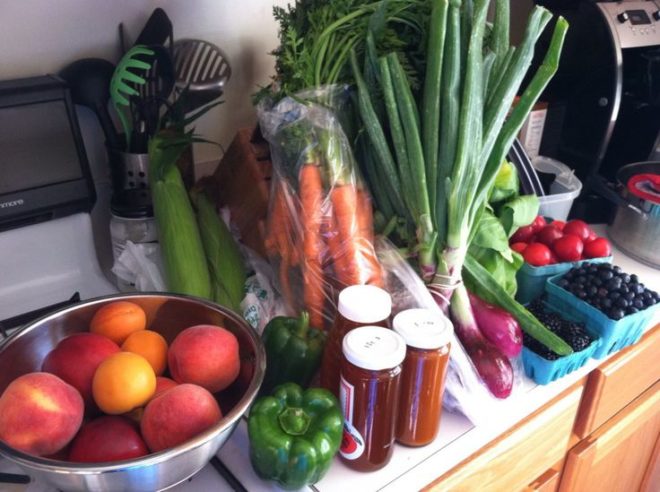Our diet and lifestyle play a major role in our overall health and as discussed in the earlier post, certain conditions (endometriosis in this case) respond very well to certain diet modifications.
In the previous post I had outlined why and how diet directly affects certain symptoms of endometriosis, now it’s time to highlight what types of food to cut down on or avoid and which to take more of.
Some foods can help to naturally control hormones, which play a key role in endometriosis symptoms. Certain foods may also have a negative effect, triggering symptoms.
The basic idea is to follow a diet which is rich in anti-inflammatory foods, iron, fibre and essential fatty acids. In addition to easing symptoms, addressing your diet can boost your immune system and provide a preventative measure for overall health.
On the list of things to cut down on:

Wheat – this includes breads, cakes and pasta products, this is because wheat contains phytic acid which can aggravate symptoms of endometriosis. It also contains gluten which women with endometriosis seem to be sensitive to.
Red meats – This promotes negative prostaglandins which cause inflammation and can also contain growth hormones.
Refined and concentrated carbohydrates – The major culprits in this category include white bread, flour, cakes, pasta, etc. made from refined flours. Most of the nutritional value has been removed so they’re just empty calories and of no use to your body.
Refined sugars and honey – This causes inflammatory reaction and produces a more acidic environment in the body which can increase the inflammation of endometriosis. However organic honey is a better alternative.
Caffeine – this is found in tea, coffee, soft drinks. It increases abdominal cramps because it is a known phytoestrogen.
Dairy produce – including milk, cheese, butter, cream – causes inflammatory reaction as they increase inflammatory prostaglandins.
Fried foods – this can stimulate negative prostaglandins.
Saturated fats and oils – foods that are high in fatty acid stimulate the negative inflammatory reaction.
Alcohol – Extremely inflammatory and affects vitamin D levels in the liver.
Soya – Contains high levels of phyto-oestrogens and toxins that can trigger endometriosis symptoms.
Now for some of the things to incorporate into your diet that can be helpful.

Essential fatty acids (EFAs) – EFAs help to control inflammation, contribute to positive prostaglandin production and aid tissue healing. These can all help to relieve endometriosis symptoms. Try to include foods rich in essential fatty acids, and good oils (i.e the omega-3 fatty oil group) such as: Oily fish , walnut oil, pumpkin seeds and dark leafy green vegetables.
Iron – Having a healthy liver is important for good hormone balance. This is because the liver detoxifies chemicals and waste products including excess hormones. An adequate supply of vitamins and minerals, particularly B vitamins and antioxidants, are therefore important to include in a diet for endometriosis. This will support the liver in functioning well and also support aspects for general health such as the immune system.
Also,women with endometriosis tend to have very heavy periods which can lead to an iron deficiency. This can lead to anemia which is characterized by extreme fatigue and weakness.
Examples of foods rich in iron include: dark green leafy vegetables, meat, fish, eggs, nuts and seeds.
Fibre – Soluble fibre aids digestion and helps the body to naturally expel hormones. It does this by binding to any excess oestrogen and inhibiting reabsorption. Therefore women with endometriosis are encouraged to consume the recommended 24 grams of fibre a day. Key foods that are rich in fibre include: fruits like apples and pears, whole grain foods, beans and nuts.
Magnesium – this is believed to ease cramping with menstruation. It also assist with maintaining water levels in the gut and can also help with constipation.
Calcium – levels of calcium in menstruating women decreases 10-14 days before the start of the period and deficiency may lead to muscle cramps, headache and pelvic pain so taking calcium supplements can help prevent this.
Selenium – when taken with vitamin E has been reported to decrease inflammation associated with endometriosis and it also helps to boost the immune system.
Now this list might make some people a little sad because he thought of adhering strictly to it takes the joy out of eating even for me, however it should just be considered as a guideline to help you make better decisions for your health especially if you do suffer from endometriosis.
So try making some adjustments and see how much of a difference it can make in your symptoms.






